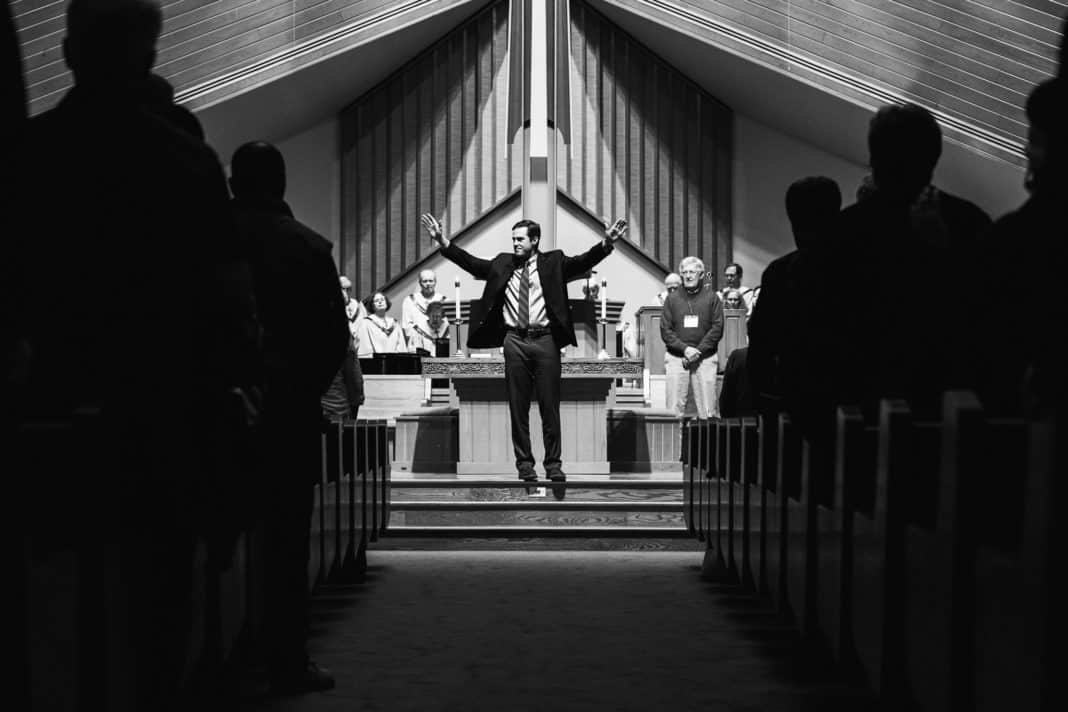Throughout the 500th anniversary celebration of the Protestant Reformation, Martin Luther has been the principal character for reflection. At the center of Luther’s personal quest, which led to the important role he played in the Reformation, was a question: How is one made right (justified) before God?” In answering the question of whether the Reformation still matters, one must decide whether the question that motivated Luther matters today. No doubt, there are those for whom such a question is out-of-date or even a bit “passé”, theologically. Perhaps that fact in itself shows us that the Reformation still matters more than ever!
However, Luther’s question was not the only question of the Reformation. For John Calvin there was a question that was prior to Luther’s: “How is God rightly worshiped?” Calvin saw this question as even more important than the question of justification, because Calvin understood that salvation is for the purpose of worship. We are justified (“saved”) by God so that we might serve him to his glory. Salvation is for worship. It is the end and goal of our justification. The importance of this question for the Reformed (something that was true well before Calvin enunciated it) is why the Reformed cities of Strasbourg and Zurich reformed their worship (as well as putting it into the language of people) before Luther himself did.
The Reformation was the reformation of the church, and the reformation of the church meant nothing less than the reformation of worship. Thus, to answer the question of whether the Reformation still matters, we must ask whether the church matters and whether the church’s worship matters.
Even among Reformed Protestants in America today, many would find the question of Calvin strange. It assumes that we are not free to worship God in whatever way we might like. It assumes that God may well prefer one form of worship over another. It assumes that not all ostensibly Christian worship services are equal. In much American Protestant worship today, the overwhelming sense is that we are free to worship God however we please, as long as we are “sincere” in doing it. Many see the differences in the way worship takes form today as matters of “preference” or “taste.” Given how shaped we are today by the pervasive entertainment culture around us, many people come to worship expecting to see something little different than a concert performance by musicians followed by a religious “TED Talk.” While others may prefer a choir and a hymnbook, these differences rate as simply matters of preference and taste. Indeed, an appeal to preference perhaps is a way of keeping peace in the midst of the “worship wars.”
Before insisting that worship is not worth arguing over, one should take note of the fact that one way of reading the Bible is through the lens of worship. The Bible itself chronicles a “worship war” that stretches as far back as Cain and Abel when God accepted the worship of one and not the other. Israel’s history is that of one great worship war, centered around the themes of the first two commandments: whom were they to worship (the first commandment) and how they were to worship? Against all the temptations to worship God according to tastes and personal preferences, the prophets constantly called the people of God back to what God himself had revealed to those who would worship him. Both the message and the medium of worship matter. In the Old Testament, worship is at the heart of the struggle of God’s people to live and be God’s people.
Likewise, in the New Testament, we see this same concern. When Jesus addresses the woman at the well in Samaria, the two of them discuss worship. Jesus states to her, “But the hour is coming, and is now here, when the true worshipers will worship the Father in spirit and truth, for the Father is seeking such people to worship him. God is spirit, and those who worship him must worship in spirit and truth” (John 4:23-24). God is seeking people to worship him, Jesus says. This was true when God redeemed Israel out of Egypt. God told Moses to tell Pharaoh to let his people go, “that they may hold a feast to me in the wilderness” (Ex. 5:1), “that they may serve me” (Ex. 8:1). This is the language of worship. God is still seeking people to worship him, not in “any ol’ way,” but “in spirit and truth.”
Given the confusion and chaos that characterize worship in congregations today (even, perhaps especially, in Presbyterian and Reformed churches), Calvin’s Reformation question is as relevant as it was in the sixteenth century. How do we worship God rightly? How do we worship God not simply according to our tastes and preferences, but according to his desires and will for us, “in spirit and in truth”? As the Reformers put it, “How do we worship God according to his Word? In congregations that take their lead from the “liturgical renewal movement” (and the rediscovery of the so-called “church calendar”) as well as congregations that follow the patterns of worship that flow from the “charismatic movement”, there is a widespread neglect of the principal Reformation concern of Calvin. Yes, the Reformation still matters.
_____________________________________________
The Reverend Dr. Walter L. Taylor is Senior Pastor of Oak Island Presbyterian Church (EPC), Oak Island, NC.
